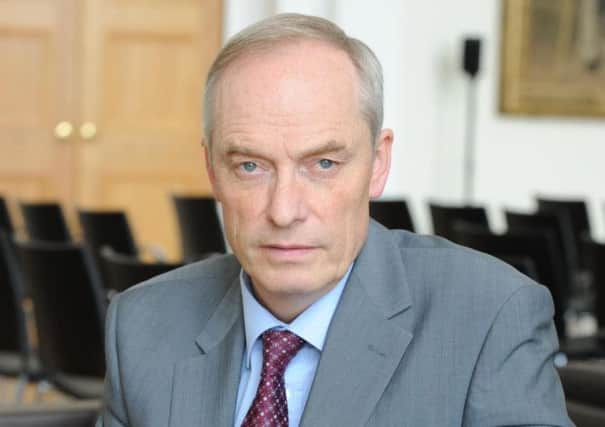Economy sees feelgood factor but job growth slows


Improved conditions also led companies to increase staffing levels, though the rate of job creation last month retreated from February’s peaks.
The latest Bank of Scotland purchasing managers’ index (PMI) showed that March’s increase in business activity was underpinned by another “solid” rise in the level of incoming work. An ongoing recovery in the housing market helped buoy confidence.
Advertisement
Hide AdAdvertisement
Hide AdWhile the growth was broad-based, spanning both the manufacturing and service sectors, new export orders among manufacturers remained a weak spot.
The report’s key output barometer rose slightly, to 56.4 last month from 56.2 in February. Any reading above 50 constitutes growth, 50 indicates no change and below 50 suggests contraction.
Donald MacRae, chief economist at Bank of Scotland, said: “The March PMI signalled further strong growth of business activity across both manufacturing and service sectors.
“Not only did the level of new orders increase but employment rose for the 16th month in a row, while cost pressures eased. New export orders fell for the second consecutive month, illustrating the challenge of improving our trade performance.
“The Scottish economy has added another month of expansion, further embedding the growing recovery,” he added.
The index’s quarterly average improved slightly from the final three months of last year, the report suggests.
There was a “notable easing” in the rate of cost inflation faced across the private sector to the slowest since September 2009. “Anecdotal evidence highlighted the impact of a dip in fuel prices and strong competition among suppliers,” the report added.
The PMI survey is one of the most extensive of its type, polling purchasing executives in some 600 manufacturing and service sector companies.
Advertisement
Hide AdAdvertisement
Hide AdFinance Secretary John Swinney said: “We warmly welcome these figures which indicate Scottish private sector activity expanded for the 18th consecutive month. Following the January and February PMI, which both reported growth in output, the March reading suggests that the first quarter of 2014 ended on a positive note. Scotland’s economy is continuing to make headway, but there is no room for complacency.”
The report came as a top forecasting group said interest rates would remain at a record low until after next year’s general election as the UK enjoys a period of low inflation expansion.
The EY Item Club said the Bank of England will have room to keep rates at 0.5 per cent until the third quarter of next year amid “decent but unspectacular growth”, which will be driven by the continued recovery in consumer spending.
The body predicts that house prices will rise by 7.4 per cent this year and 7.2 per cent in 2015, but adds that a bubble can be avoided as long as the Financial Conduct Authority uses its powers to restrain over-enthusiastic buyers.
It also believes that toughened mortgage lending rules, which come into force this month, will help to prevent an unsustainable boom as price growth eases to 4.2 per cent in 2016.